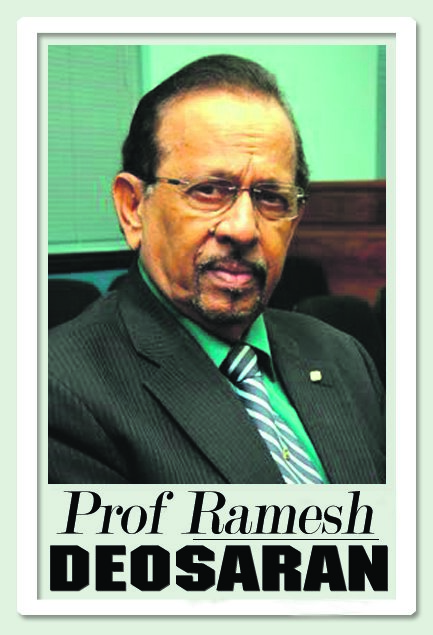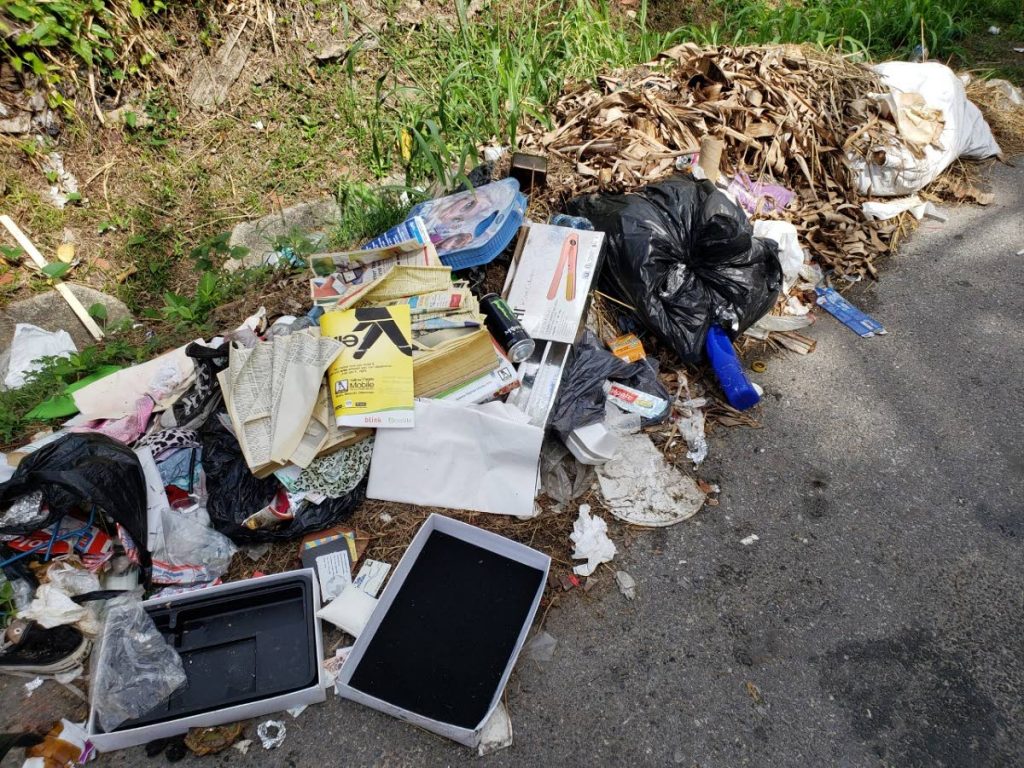Oh, the rubbish we face

Rubbish. This means “waste material, debris, refuse, or litter.” It also means “absurd ideas or suggestions, nonsense.”
And from what I have recently seen, read and heard, it seems that quite a few people believe we have loads of both types.
A few days ago, at a street corner in one of our regional corporations, I saw heaps of rubbish strewn along the streets, piled one upon the other, looking so ugly, as if no one cared. Citizens here seem to stop being troubled by rubbish. Looks like this too has become another of our “new normals.”
To tell you the truth, I myself would have just left the rubbish matter there. Like many others, I have complained about it here many times.
But what raised my disgust when I saw the unattended rubbish heaps was the fact that I had just returned from visiting several cities abroad where on each street, each corner, and before each residence, I saw well-located garbage bins – most government-provided, some with business partnership.
And clean streets, clean cities. From Edinburgh, Aberdeen, Dublin, Belfast, Glasgow back to London. Even before that, last May, in Miami and Louisiana’s Baton Rouge, reputed to be a relatively poor place, the government provided garbage bins – well-placed along the streets and before homes. The well-programmed pick-up trucks did the rest. It hurts when you know your country could do better.

In these cities abroad, the streets, yards and parks are all clean as a whistle. Beaches too have garbage bins and all-day clean-up crews. The convenient availability of these garbage bins to the taxpaying residents showed what thoughtful leadership is all about. There were triple bins – one labelled for glass, one for paper and another for recycling. Both city officials and citizens shared the pride and responsibility.
You don’t hear the tiring slogan about how it is “everybody business.” It is, but the system requires leadership, then sanctions. But we here are quick to punish and make laws rather than first ensuring that preventive facilities are properly provided, then punish.
Look at our traffic and road situation. Certainly, punish those who break the law. But what about the faded, absent white lines on the roads, the multitude of dangerous potholes, the lack of proper traffic and road signs, the very dark unlit roads, broken bridges, etc. All this is road safety too, not only speeding. And well understood by the cities abroad. Fellow citizens, of course, have had similar experiences, seeing what others do so well, only to come back home to see the neglect, the rubbish, the bad attitudes towards public sanitation and city safety. How will the budget and opposition promises bring remedy?

There is really no national or regional corporation waste management system here. SWMCOL’s CEO Ronald Roach resigned last April after describing the company’s operations as “primitive.” SWMCOL explained while the state of its landfills are satisfactory, there is more to be done, especially with recycling.
But that does not reach the challenge of street garbage bins and rubbish collection for systematic recycling. The country awaits Minister Robert Le Hunte’s early action on the Beverage Containers Bill.
Early this year, when Minister in the Ministry of Finance Allyson West conscientiously noted how the city of San Fernando was appearing so rubbished and broken, Mayor Junia Regrello shouted her back, in denial.
In both building violations and rubbish dispersion, Ms West had a point. In fact, it is not only the state of rubbish. It is how you expect the city to be. And San Fernando, Port of Spain, Chaguanas – whatever the politics, deserve to look much better.
Last month, a damning report noted the dying state of Port of Spain. Excuses flourished, leaving Mayor Joel Martinez embarrassed.
All this and more help make this rubbish-cultured place a death wish society.
Rubbish like “absurd ideas and verbal nonsense” may be tolerated as freedom of speech. But the presence and management of rubbish like “waste material, refuse, debris and litter” are dangerous to health, economic development and a contributor to climate change. Can we change?

Comments
"Oh, the rubbish we face"